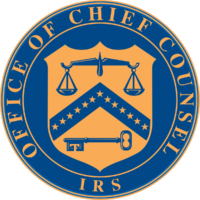Originally published on Passive Activities and Other Oxymorons on June 24th, 2011.
____________________________________________________________________________
CCA 201112008
Being as attached to double entry as any other accountant, I understand the theory behind making cancellation of indebtedness taxable income. Somebody writes off a loan receivable. If the debtor does not pick up income that big balance sheet in the sky will be out of balance creating severe perturbances in the space time continuum. Still I put it in the same category as the auditors putting a going concern qualification on financial statements. It’s kicking somebody when they are down.
There is relief from cancellation of indebtedness income. It does not apply if you are in bankruptcy of if you are insolvent to the extent of your insolvency. It always seemed to me that there should be a presumption of insolvency when there is debt discharge, but nobody ever asks me.
This ruling is a bit of good news for some people who might otherwise be facing debt discharge income. It concerns victims of predatory lending practices :
Payments made by co. to settle allegations of unfair lending practices weren’t gross income to borrowers under IRC Sec(s). 61(a)(12) where settlement had effect of equitably reforming loans by adjusting principal amount to amounts that borrowers would have obtained in absence of unfair lending practices, and where trustee’s payments to loan holders and/or servicers didn’t result in accession of wealth to borrowers.
Company provided funding to Bank to finance Loans to Borrowers. Borrowers used the proceeds of Loans to finance Assets, and the Assets secured Borrowers’ obligations under the Loans. State investigated the activities of Company in financing the Loans and alleged that Company had engaged in unfair lending practices under State law. To avoid further investigation and possible legal action by State, Company entered into Settlement with State.
The Settlement states that Company enabled Bank to make unfair Loans with principal amounts in excess of the principal amount that Borrowers would have obtained in the absence of the unfair lending practices. The Company agreed to pay $x to an independent trustee of a settlement fund. The trustee will make payments to a Loan holder and/or servicer of a Borrower’s Loan to reduce the amount a Borrower will repay on a Loan.
The Settlement has the effect of equitably reforming the Loans by adjusting the principal amounts to the amounts that the Borrowers would have obtained in the absence of the unfair lending practices. The trustee’s payments to the Loan holders and/or servicers do not result in an accession to wealth to Borrowers. Consequently, the payments are not gross income to Borrowers under § 61 of the Internal Revenue Code (including § 61(a)(12)) and are not subject to information reporting requirements under § 6041 or § 6050P.
So if the state regulators finally caught up with the tin men who got your aunt to sign a $50,000 note to put $10,000 worth of siding on her house, she doesn’t have to worry about picking up income.































































































